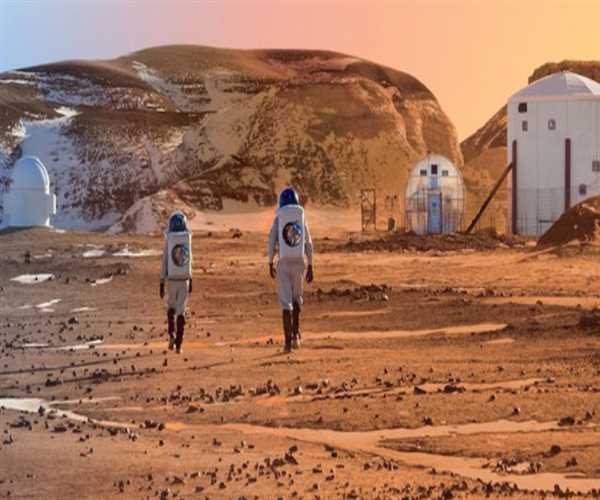
25-Apr-2024 , Updated on 4/25/2024 5:53:08 AM
Why do humans want to live on Mars?
Although Mars is a nearby planet in our solar system, it is still a clear target for study for many other reasons. The hunt for life, learning about the surface and the planet's history, and getting ready for more human exploration are the main scientific motivations for visiting Mars.
Why do humans want to live on Mars?
One of the most important questions facing humanity is whether life exists outside of Earth. Since Mars is the closest planet in the Solar System to Earth, it is a great spot to look into this issue. Research points to a possible habitable Mars in the past, when it was warmer, wetter, and had a thicker atmosphere.
Recognizing Mars's surface and its history
While life began to form and developed on Earth, Mars' environment underwent significant alteration. Planetary geologists can look for hints to learn more about the surface's past by examining rocks, sediments, and soils. Researchers are curious about the water's past on Mars in order to figure out how life may have lived there. The history of Mars is preserved in its volcanoes, meteoroid impact craters, atmospheric or photochemical effects, and geophysical processes.
Samples of the atmosphere may provide important information on how and when it formed, as well as the reason why Mars' atmosphere is thinner than Earth's.
We can also learn more about our home planet from Mars. Gaining insight into Martian geophysical processes might reveal information about Earth's and other worlds' past and evolution in the solar system.
Human investigation
Robotic missions can scout ahead and assist us in identifying prospective resources and the hazards associated with operating on the planet, hence lowering the expense and risk associated with human exploration of Mars.
We need to know the risks before we deploy astronauts. When astronauts return to Earth, uncontained martian material will inevitably end up on them or on their gear. The planning and preparation of these upcoming operations will benefit from an understanding of any biohazards present in the dust and dirt.
It is difficult to get to Mars, and it is significantly more difficult for people since we would have to bring everything we would need to survive the journey there and back. Utilizing locally accessible materials might facilitate the design of a Mars expedition. For human adventures, water is an essential resource that may be used as fuel and for astronaut consumption. Robotic sample collection may be used to assess possible resource locations and methods for future human explorers.
Advancing as a species
Exploration may benefit human advancement and improvement in many ways, just as it feeds a wide range of scientific discoveries. It encourages people of all ages to seek new professional options. It compels us to reflect on our humanity and place.
It makes us reevaluate philosophy. Knowing more about the solar system and the cosmos makes it easier for us to appreciate how unique our little area of space is and encourages us to focus on the similarities rather than the differences between us and other people.
Conclusion
The possibility of visiting Mars has grown increasingly real and intriguing, particularly in recent years. In the upcoming decades, human habitation on Mars is being planned by both commercial space enterprises and space authorities.
The counterargument that we already have enough issues on Earth and shouldn't move them to another planet is one that many may make, however populating Mars would have a lot of positive effects on society, research, and creativity.
In the upcoming decades, we as a species and as separate nations will have to decide how important it is, but for the time being, there is interest in at least sending humans to the Red Planet.

CONTENT WRITER
Writing is my thing. I enjoy crafting blog posts, articles, and marketing materials that connect with readers. I want to entertain and leave a mark with every piece I create. Teaching English complements my writing work. It helps me understand language better and reach diverse audiences. I love empowering others to communicate confidently.
Join Our Newsletter
Subscribe to our newsletter to receive emails about new views posts, releases and updates.
Copyright 2010 - 2026 MindStick Software Pvt. Ltd. All Rights Reserved Privacy Policy | Terms & Conditions | Cookie Policy